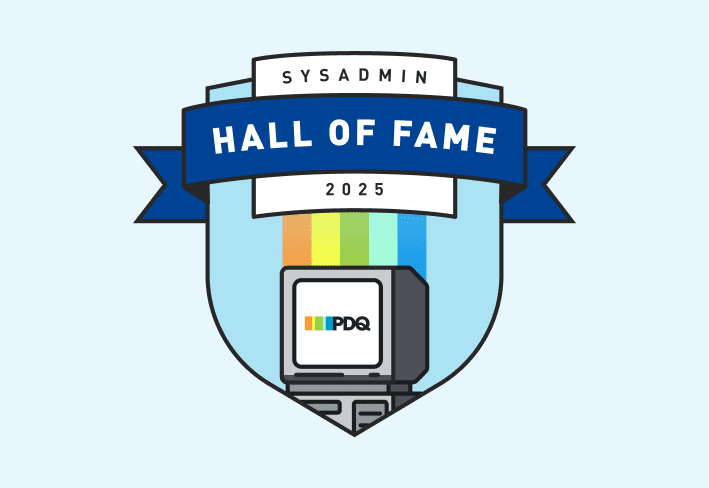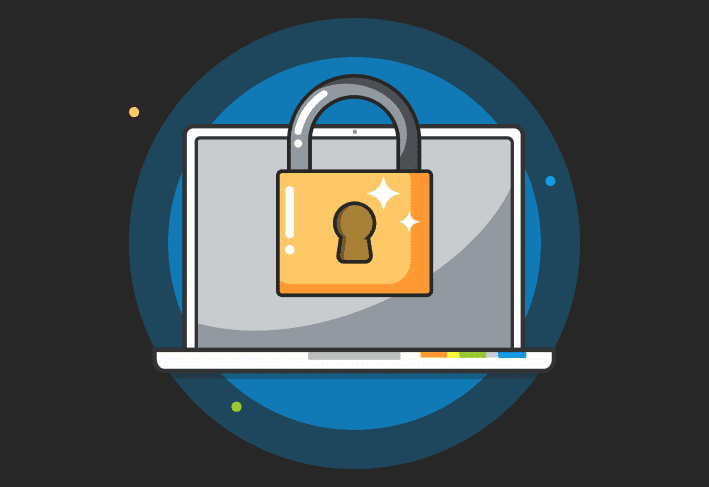A great sysadmin is a curious, adaptable, and relentlessly pragmatic problem solver. Their IT skills span technical know-how and soft skills. Here’s what separates the good from the truly legendary according to PDQ’s expert sysadmins.
Lifelong learning
Great sysadmins continuously update their skills. Tech changes fast, and the best admins stay ahead by learning new tools, scripting languages, and platforms. Whether it’s through labs, certs, or tinkering at home, they treat learning like patching — essential and somehow never scheduled during work hours.
What it looks like
“Continued education will mostly happen on your own time. Those who take this initiative and consistently demonstrate & apply their new skills will stand out where it matters.” — Corey, solutions engineer at PDQ
“Always learn something new; things change regularly.” — Jason, software engineer at PDQ
Practical communication
Clear, thoughtful communication bridges the gap between the technical and the nontechnical. From explaining outages to writing KBs and documenting scripts, strong sysadmins know how to talk to both machines and humans. They reduce friction by translating complexity without talking down. And they know that when tech problems arise, miscommunication often makes things worse.
For instance, telling users, “The API rate limit was exceeded,” might leave a lot of them scratching their heads. Saying, “The system was overloaded. Try again in 10 minutes,” is a lot more effective.
What it looks like
“Communication with nontechnical folks helps tremendously, nothing sucks more than misunderstanding what is wrong because of differences in terminology.” — Jason, software engineer at PDQ
Boundless curiosity
Curiosity drives better troubleshooting and smarter solutions. Exceptional sysadmins ask “why” until they find the root cause. They poke, prod, and dig through logs not just to fix but to understand. That problem-solving mindset keeps environments stable and secure.
What it looks like
“The best sysadmins I’ve ever known are curious problem solvers. The kinds of people who treat roadblocks as obstacles to be overcome.” — Corey, solutions engineer at PDQ
“Understanding why something broke is important but also caring enough to dig into it, learn the system and (ideally) create a lasting solution.” — Mark, product manager at PDQ
Relentless automation
Automation is how sysadmins scale their impact. Manually patching 500 endpoints? That’s not sustainable. Great admins script, schedule, and streamline everything they can — then document it so others can repeat it safely.
For instance, PDQ Connect lets you automate deployments, email reports, device grouping, and more.
Automate your patching
Keep devices patched and secure from the cloud.
What it looks like
“Automate all the stuff.” — Jake, IT systems administrator at PDQ
Disciplined testing & thoughtful risk tolerance
Great sysadmins walk a fine line between caution and progress. They know that every change carries risk, so they test thoroughly and weigh impact. Disciplined testing prevents outages and drama, while thoughtful risk tolerance drives environments forward without blowing things up. Whether it’s a new patch, GPO, or PowerShell script, testing in a lab (or at least staging) is a nonnegotiable habit. Great sysadmins never YOLO into production.
What it looks like
“Test test test test. Maybe I'm more cautious than most but any spooky projects or major system projects I was responsible for I would do my best to clone everything into a test environment and break/fix/etc. on repeat.” — Jake, IT systems administrator at PDQ
“When I first started my IT career, I worked under two senior sysadmins with very different approaches to making environmental changes.
One was overly cautious and believed that you shouldn’t make any changes that were not absolutely critical. He didn’t introduce a lot of downtime, but adoption of new technologies was slow and project implementation was often delayed.
The other admin wasn't cautious enough and felt that if the environment would benefit from a change, you should just do it if the risk was low. He got a lot done but also took down some critical applications on more than one occasion.
I landed somewhere in the middle with my thought process.” — Clayton, solutions engineer at PDQ
Ground-up experience
Hands-on experience builds technical intuition. The best admins didn’t skip the help desk. They know what end users struggle with, how the network really runs, and where the logs live because they’ve touched every part of the stack.
What it looks like
“The best sysadmins have worked their way up. Having experience in multiple roles along the way provides the best knowledge for troubleshooting down the road ... Great IT managers come from the trenches too.” — Tara, content engineer at PDQ
People skills
Technical chops can get you in the door, but people skills keep systems (and teams) running smoothly. Great sysadmins know how to stay cool under pressure and support frustrated users with empathy. They don’t just fix problems — they make the process less painful for everyone involved. (But screaming into a pillow after hours is still totally valid.)
What it looks like
“Soft skills are more important than raw technical ability; you can be the most technical person alive but that won’t matter if you’re miserable to work with.” — Corey, solutions engineer at PDQ
“For me, what separates a good sysadmin from a great one is people skills. If they are approachable and share their knowledge that makes them great.” — Tara, content engineer at PDQ
Radical adaptability
The best sysadmins pivot quickly and recognize what they don’t know. They don't cling to a dying platform or blame “bad users.” Instead, they adapt their tools, workflows, and mindset to meet new demands, whether that's cloud migrations or AI integrations.
What it looks like
“I can generally find what I need to find even when I don't know what I'm looking for. My previous job was waaay above my abilities when they offered it to me and I was pretty confident by the end despite most if it being me teaching myself.” — Jake, IT systems administrator at PDQ
“No one knows everything, and never trust anyone who thinks they do.” — Corey, solutions engineer at PDQ
Constructive failure
Failure is where sysadmins level up — if they reflect. Every outage, misconfigured backup, or accidental reboot becomes a lesson. The best admins don’t hide mistakes — they document them, fix the root cause, and share the fix.
What it looks like
“You will, at one point or another, screw up and break something that causes most of your users to be beyond moderately inconvenienced. This is an inevitable rite of passage that every sysadmin must endure before truly earning the ‘sysadmin’ title. How you react to & remediate the situation is one of the most important & defining moments of your entire sysadmin career.” — Corey, solutions engineer at PDQ
“Failure is the best teacher. We learn what not to do going forward. The key is to provide a safe space to fail.” — Tara, content engineer at PDQ
If you know a sysadmin who showcases the must-have skills for IT admins, nominate them for the Sysadmin Hall of Fame. It’s our way of recognizing the quiet heroes who keep everything running.




